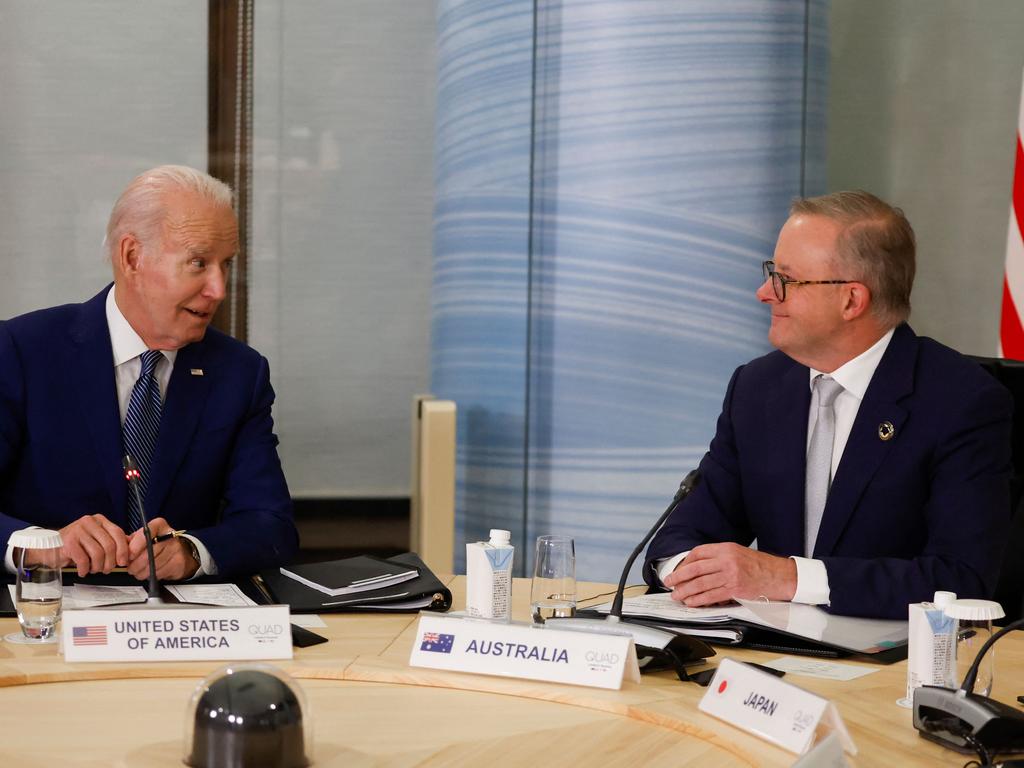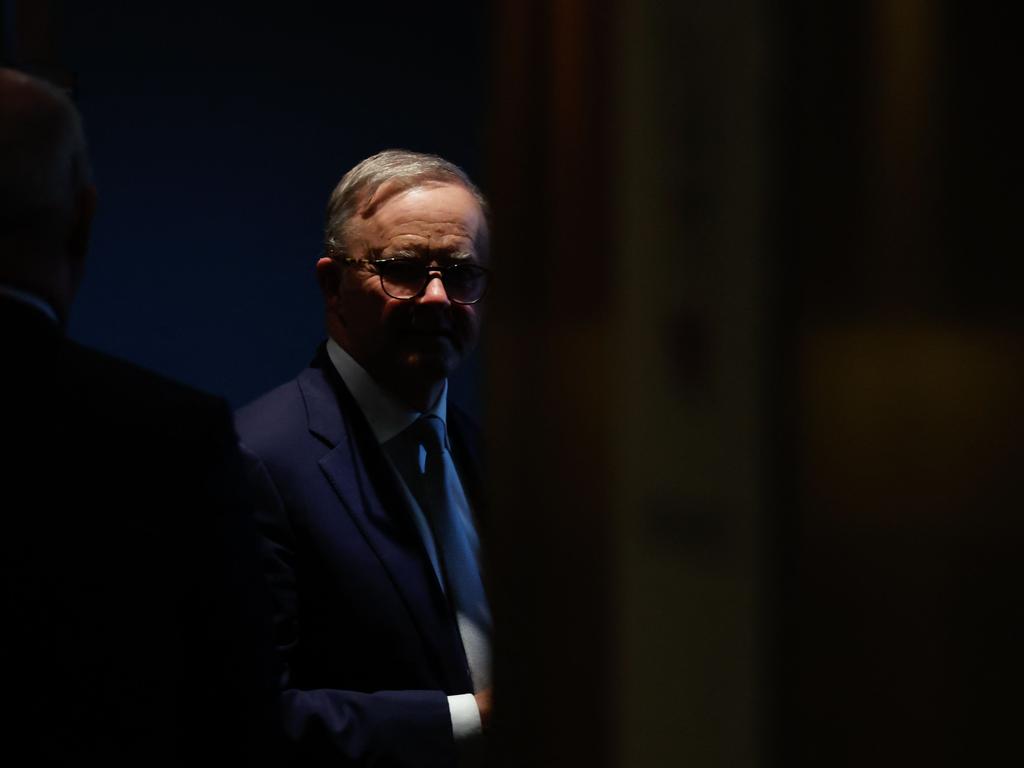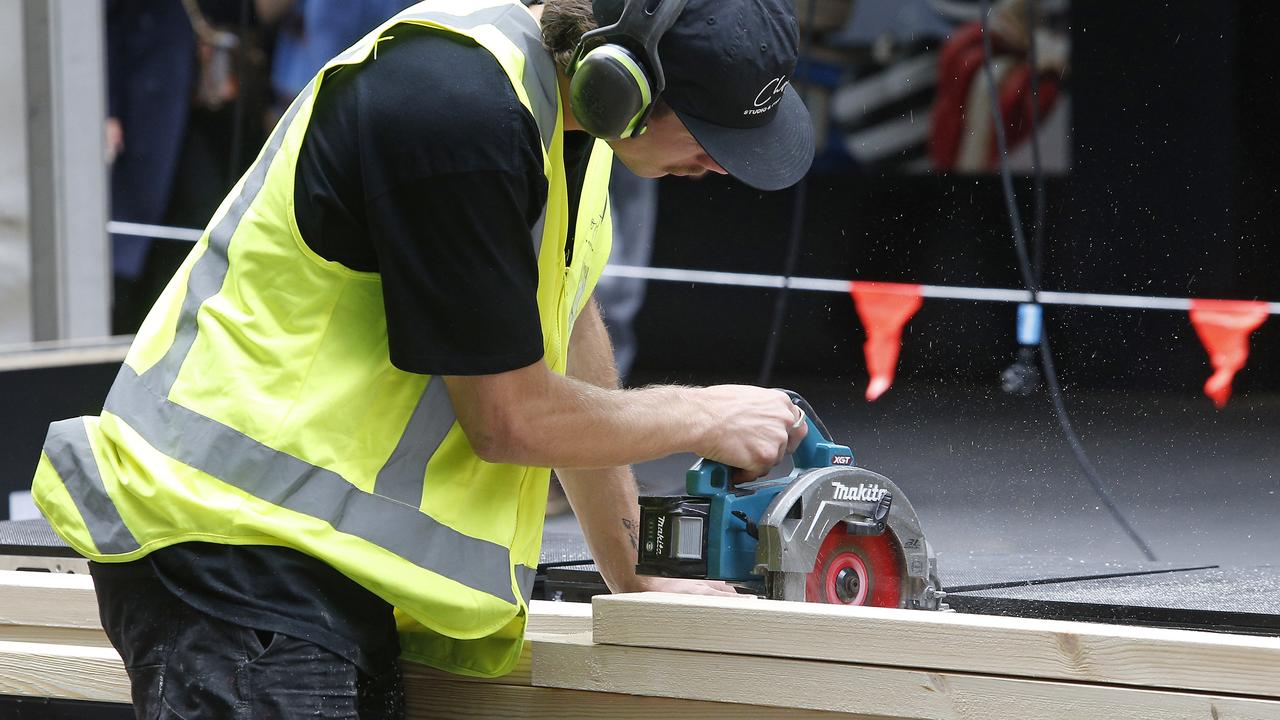Third pillar: Biden vows to deliver bilateral climate and hydrogen energy boost
Anthony Albanese secures a deal he says will allow Australian companies to benefit from the US Inflation Reduction Act.
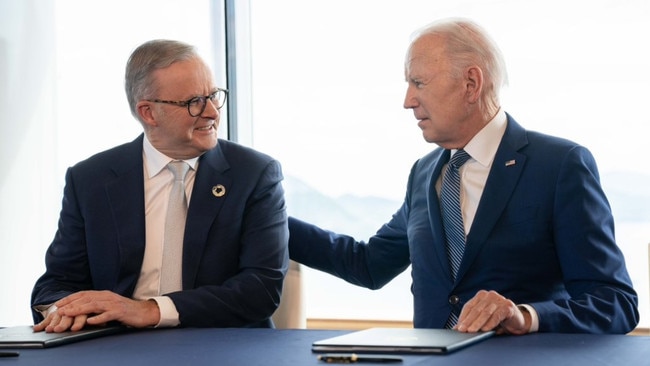
US President Joe Biden has declared that climate and clean energy will be the “third pillar” of the Australia-US alliance after Anthony Albanese secured a deal he said would allow Australian companies to benefit from Washington’s behemoth $US369bn ($555bn) Inflation Reduction Act.
The Prime Minister on Sunday said the deal – announced on the sidelines of the G7 summit in Hiroshima – would nurture Australia’s hydrogen industry and encourage American investment in our critical minerals industry.
Some experts, however, said the deal was not legally binding and questions arose over whether Australia would ultimately benefit from Mr Biden’s climate investment juggernaut.
“If we think about industries like hydrogen, without that support there would be a massive incentive for hydrogen-based industries to be based in the US,” Mr Albanese said in Japan on Sunday. “The big risk with the Inflation Reduction Act … is you’ll see capital leave Australia for the US. This is about addressing that.
“This is about creating an enormous opportunity for Australia … and I want to thank President Biden for it. It’s an issue that I raised in the bilateral that we held in San Diego, and since then, Australia and the US have been working towards this.”
Mr Biden said the deal – the Australia-United States Climate, Critical Minerals and Clean Energy Transformation Compact – was testament to the allies’ close bilateral co-operation. “And I mean that: close. We’re going to establish climate and clean energy as the third pillar of the Australia-US alliance,” he said.
“This compact is going to enable the expansion and diversification of clean energy supply chains, especially as it relates to critical materials.”
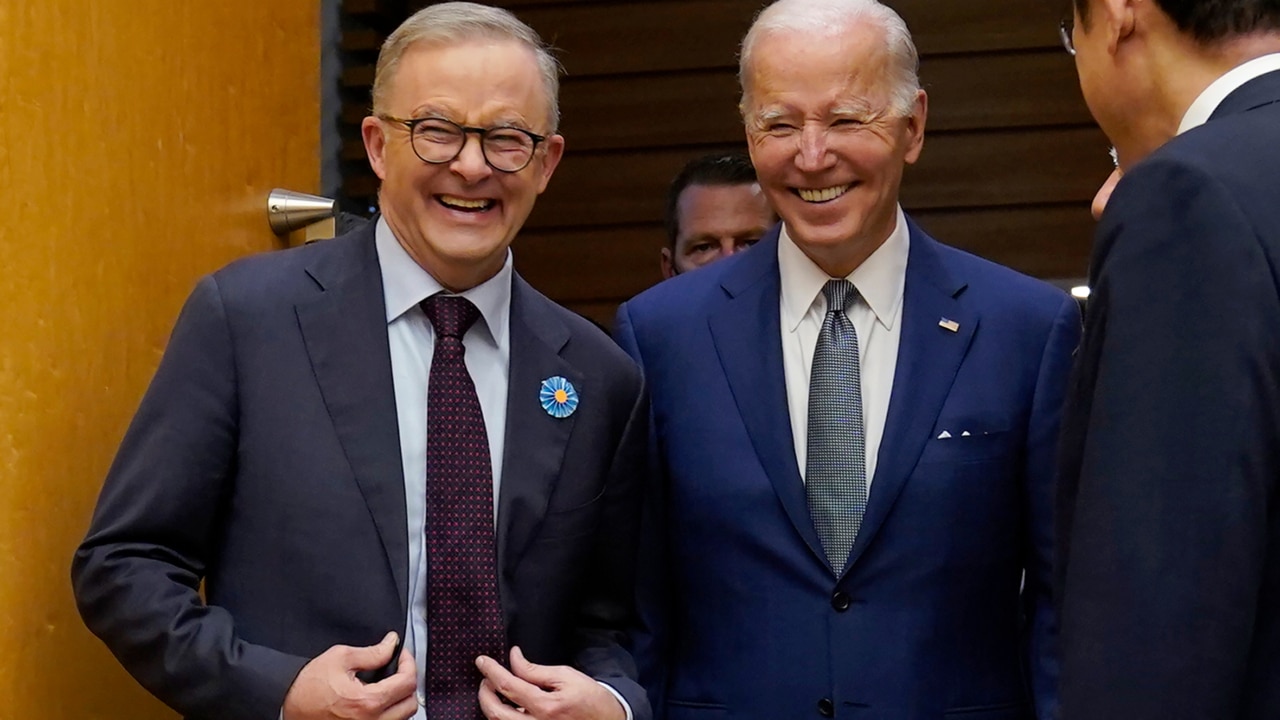
Hours after spruiking the green economy agreement, the Australian Prime Minister was defending Canberra’s policymaking towards carbon polluting industries in a bilateral meeting with his Japanese counterpart, Fumio Kishida.
Mr Albanese tried to assure Mr Kishida that Australia was committed to remaining a reliable supplier of energy to Japan amid rising “sovereign risk” fears in the boardrooms of Tokyo corporates and energy companies.
In a departure interview with The Australian in April, Japanese ambassador to Australia Shingo Yamagami said “there shouldn’t be any misunderstanding as to the depths of concern held by Japanese companies” over Canberra’s policymaking on coal and gas.
Australia is the biggest exporter of energy to Japan, accounting for 70 per cent of its coal, 60 per cent of its iron ore and 40 per cent of its gas.
The Prime Minister’s Office on Sunday said Mr Albanese had in the leaders meeting “underscored Australia’s commitment to remaining a reliable supplier of energy to Japan as both economies transition to net zero” .
“The leaders agreed the broader trade and investment relationship was vital to the success of each nation,” the PMO said.
In a second potential coup for Australia’s critical mining sector to emerge from the weekend, Mr Biden told Mr Albanese that he would ask congress to treat Australian defence firms the same way as the US domestic industry.
“Doing so would streamline technological and industrial base collaboration, accelerate and strengthen AUKUS implementation, and build new opportunities for US investment in the production and purchase of Australian critical minerals, critical technologies and other strategic sectors,” the two leaders said in their joint statement.
US Studies Centre chief executive Michael Green said the new compact was not a legally binding commitment but a statement of intent by Mr Biden.
“It’s not a treaty and it’s not even a detailed MOU,” Dr Green said, after receiving a briefing from senior US officials in Japan.
“What it is is Biden’s public commitment to Albanese that in the implementation of the Inflation Reduction Act, Australian companies and consumers won’t be unfairly disadvantaged.”
He said now Mr Albanese had secured the commitment, Japan and the EU were also be likely to seek similar pledges.
Dr Green said Mr Biden’s commitment to removing obstacles preventing the sharing of US defence technology was also not yet a binding agreement as it required the support of congress and the US bureaucracy that oversaw defence export controls but he believed there was bipartisan agreement from key figures to make the necessary changes to clear the way for AUKUS technology sharing.
Ashley Townshend, senior fellow for Indo-Pacific Security at the Carnegie Endowment for International Peace, said including Australia as a domestic source would likely increase American investment in Australian rare earths businesses.
However, he said it would not remove barriers stalling the transfer of weapons technology needed for Australia to begin domestic production of missiles.
“It is no silver bullet for Australia’s push to build long-range missiles,” he said.
Removing those hurdles remains a top priority for the government, which has called missiles a key part of its efforts to secure lethal deterrence capabilities for Australia’s defence forces.
Australia’s energy and mining companies are studying details of the new clean energy framework.
Fortescue Future Industries welcomed the new pact, saying it would prove to the world that green hydrogen could be delivered at scale and be profitable.
A Fortescue spokesman praised Mr Albanese and Mr Biden for recognising the “critical importance of green hydrogen”, which is produced from water using renewable energy. The Fortescue spokesman said the new deal would enable the company to further showcase its green energy projects “around the world”.
Business Council of Australia chief executive Jennifer Westacott said the agreement would align the nations’ clean technology standards, driving greater two-way trade and investment in green energy projects.
Climate Council senior researcher Wesley Morgan said the green energy transition offered “tremendous” opportunities to Australia but the government needed to develop its own green energy package to support the sector or risk being left behind.
ADDITIONAL REPORTING: Rhiannon Down, Jared Lynch



